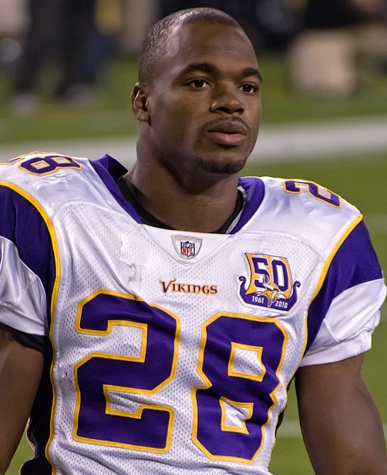The NFL MVP award has become synonymous with one position — quarterback. Over the last two decades, only three non-quarterbacks have claimed the title, and the last to do so was running back Adrian Peterson in 2012. Since then, 12 straight MVP trophies have gone to quarterbacks, reflecting the league’s transformation into a pass-heavy, offense-driven spectacle.
Adrian Peterson’s Historic 2012 Season
Peterson’s MVP run remains one of the most remarkable single-season performances in modern NFL history. Coming off a torn ACL, the Minnesota Vikings running back rushed for 2,097 yards — just eight shy of breaking Eric Dickerson’s all-time record. His dominance not only carried Minnesota to the playoffs but also marked the last time a running back, or any non-quarterback, earned MVP honors.
How the Game Has Changed
The NFL has evolved dramatically since the early 2000s. Rule changes designed to protect quarterbacks and receivers have amplified passing attacks, while analytics have further prioritized the efficiency of throwing the football over running it. Offensive schemes now revolve around elite signal-callers who command record-breaking contracts and headline highlight reels every Sunday.
Why It’s So Hard for Other Positions to Win
Running backs, wide receivers, and defenders still produce elite seasons — but the MVP award typically rewards overall team success and positional impact. Since quarterbacks directly influence the game’s most important statistic — scoring — they have an outsized advantage. For a non-QB to break through, it would likely take a historic, record-shattering campaign similar to Peterson’s in 2012 or even more dominant.
Could a Non-QB Win Again?
While unlikely, the possibility isn’t zero. Players like Christian McCaffrey, Tyreek Hill, and Micah Parsons have shown they can take over games in unique ways. However, with the continued rise of high-powered offenses and superstar quarterbacks like Patrick Mahomes, Josh Allen, and Lamar Jackson, the MVP remains — for now — a quarterback’s award.


